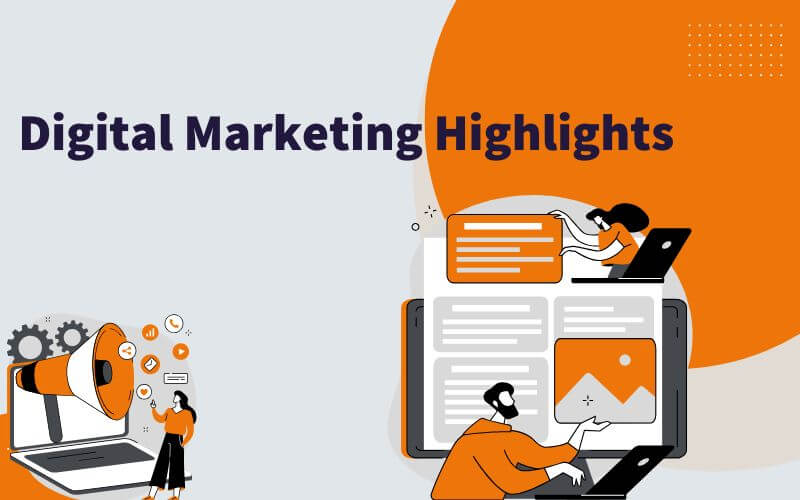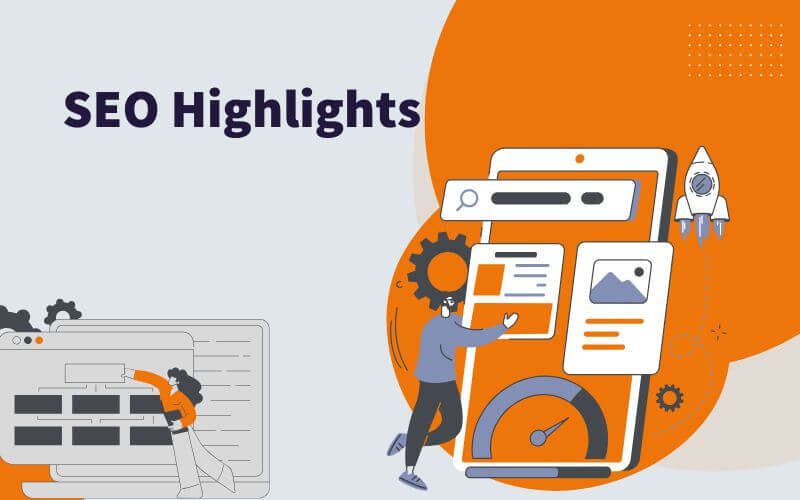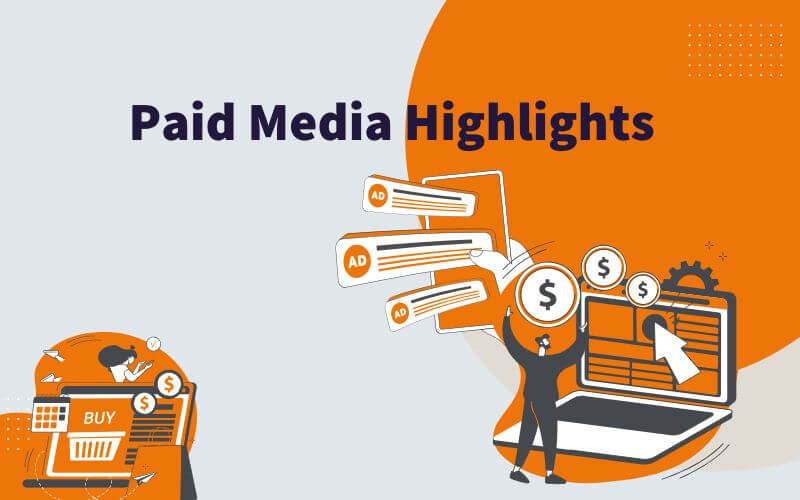Emir is an invaluable member of our team, serving as one of our esteemed Account Managers. With a profound passion for on-page SEO, he possesses an exceptional talent for discovering innovative ways to optimise websites and enhance their rankings. Joining our organisation, Loop, in 2022, Emir brought with him a wealth of expertise gained from his Bachelor's degree in Marketing Management and Advertising. Currently, he is eagerly pursuing his Master's degree in International Marketing Strategy, further enhancing his comprehensive understanding of the global marketing landscape. Emir thrives on challenges and continuously seeks fresh opportunities to elevate our clients' businesses to new heights. Aside from his professional endeavours, Emir has an unwavering passion for culinary arts and loves to cook up a storm. This ardour for cooking exemplifies his drive, creativity, and meticulous attention to detail, qualities that seamlessly translate into his work as a Digital Marketing Executive. His commitment to delivering exceptional results and his genuine enthusiasm for each project make him a trusted and highly sought-after professional. Emir's profound expertise in on-page SEO, combined with his ambitious pursuit of knowledge and dedication to his clients, make him an invaluable asset to our team. His passion, both in and out of the office, reflects his commitment to excellence, leaving an indelible mark on our clients' businesses.
Posted on 01/08/2025 by Emir Haskic
Loop Digital July Digital Marketing Industry Update 2025
Read time: 15 minutes
Is the Great Decoupling rewriting digital marketing rules faster than brands can adapt?
July 2025 has revealed seismic shifts in the digital marketing landscape as the tension between visibility and traffic reaches a breaking point. The “Great Decoupling” of search rankings from actual site visits has accelerated, with major platforms rapidly evolving their AI capabilities at the expense of traditional traffic patterns.
Meanwhile, regulatory frameworks like the UK’s Online Safety Act have finally come into force, creating new compliance hurdles for platforms and advertisers alike. The e-commerce ecosystem faces upheaval with Amazon’s strategic exit from Google Shopping ads, while agencies grapple with AI-related scandals and economic headwinds.
For marketers, July represents a critical inflexion point where embracing AI tools while maintaining authentic connections has never been more vital. This month’s industry update breaks down the most consequential developments so you can position your strategy for success in this rapidly changing environment.
Digital Marketing Highlights

AI Browsers Challenge Google’s Dominance with Comet and More
The browser wars are heating up again as AI giants OpenAI and Perplexity unveil their efforts to challenge Google Chrome’s dominance. These AI-native browsers promise a fundamentally different web experience, embedding conversational agents and natural language understanding directly into the browsing interface.
Perplexity has officially launched Comet, a Chromium-based AI browser that transforms any webpage into a “portal of curiosity.” Comet enables users to highlight text for instant explanations, summarise content on the fly, and use built-in tools for shopping, scheduling, and research. It’s currently available to select Windows users, with a broader rollout expected later this year.
Meanwhile, OpenAI is developing a ChatGPT-powered browser experience that integrates autonomous agents into the browsing interface. These developments signal a shift in how users discover and interact with content, moving away from keyword search toward AI-assisted exploration.
ChatGPT Recommendations Potentially Influenced By Hacked Sites
An investigation by SEO expert James Brockbank has revealed that ChatGPT may be citing hacked websites and expired domains in business recommendations. The analysis found pages placed on compromised sites being used to recommend businesses, with attackers exploiting ChatGPT’s trust to sneak in gambling promotions and hijacked recommendations.
This manipulation raises serious concerns about the reliability of AI-generated recommendations and highlights a new form of “AI poisoning” where bad actors can exploit the lack of proper verification in large language models.
Google Faces EU Antitrust Complaint Over AI Overviews
The European Union has received an antitrust complaint against Google from a group of independent publishers alleging that the company is “misusing web content for Google’s AI Overviews in Google Search.” Filed on June 30, the complaint claims that Google is abusing its dominant position in the search market by using publisher content without proper consent or compensation to generate AI summaries, which have caused significant traffic drops for many sites.
Cloudflare to Block AI Crawlers by Default with New Pay Per Crawl Initiative
Cloudflare has announced that new customer domains will automatically block AI scrapers unless explicitly allowed, launching a “Pay Per Crawl” feature that enables site owners to charge fees for AI crawlers accessing their content. This groundbreaking move gives publishers unprecedented control over how AI companies can use their content, with options to block specific crawlers, allow selected ones, charge for access, or grant free permissions.
Google Upgrades Keyword Planner with Enhanced Forecasting Tools
Google has significantly upgraded its Keyword Planner tool with new localised forecasting capabilities, allowing advertisers to break down keyword forecast volumes by city, region, and device type. The enhanced tool now provides more granular insights with visual snapshots, including pie charts of user locations, giving marketers deeper insights for targeted, localised planning. The update enables more precise campaign targeting and budget allocation based on geographic performance expectations.
Agency’s Cannes Lions Awards Revoked for Use of AI, Safeguards Introduced
Cannes Lions has withdrawn the Creative Data Lions Grand Prix winner, “Efficient Way to Pay” for Consul, after discovering that Brazilian agency DM9 used AI-generated content to simulate real-world events and campaign outcomes. The agency also withdrew entries for two other clients, resulting in the revocation of a total of 12 awards: one Grand Prix, three golds, four silvers, and three bronzes. In response to this controversy, Cannes Lions has introduced a series of measures to safeguard the integrity of its awards in the generative AI era, including a code of conduct, mandatory AI disclosure requirements, content detection tools, and a dedicated review committee.
The UK’s Online Safety Regime Goes Live
After seven years in development, the UK’s Online Safety Act has reached its most significant milestone with extensive new duties to protect children online taking effect on July 25, 2025. Platforms accessible by children must now implement “highly effective” age checks and adjust content recommendation systems to protect minors from harmful content. Ofcom, the UK’s communications regulator, calls this a “transformational” change, though it acknowledges full implementation will be an ongoing process rather than an overnight fix.
Google Search Chief Liz Reid on Ads, AI, and the Future of Search
In a recent interview, Google Search VP Liz Reid provided insights into the company’s vision for the future of search, confirming that ads will be incorporated into AI-powered search results. Reid emphasised that the new AI-driven search experience aims to make information come to users “effortlessly” while preserving the ad-based business model that sustains Google’s operations. Her comments suggest Google is rethinking everything from search results to advertising and personalisation as it navigates the transition to AI-first search, with significant implications for marketers who rely on Google’s ecosystem.
TikTok Developing Separate US App Ahead of Expected Sale
TikTok is reportedly developing a standalone app specifically for US users that will operate on an independent algorithm and data system, separate from its global platform. According to sources, the new app is expected to use only data from US users to train its recommendation algorithms, creating further distance from TikTok’s global operations.
Engineers aim to launch this US-specific version by September 2025, ahead of the divestment deadline set by the US government. While the app will replicate TikTok’s global features, it will isolate US user data, addressing some of the national security concerns that have driven regulatory pressure on ByteDance.
SEO Highlights

The Great Decoupling of Search and the Birth of the Agentic Web
A groundbreaking analysis has identified what’s being called “The Great Decoupling” – the historic severing of the link between being found in search and being visited. This phenomenon represents the most significant shift in the web’s economic foundations since the search engine’s invention. Publishers are witnessing a paradoxical trend where search visibility has increased while traffic has plummeted by 30% or more.
This fundamental change is forcing a complete rethinking of content strategy, with some publishers now seeing a negative correlation between impressions and clicks.
Google Web Guide for AI-Organised Search Results
Google has launched Web Guide, a new Search Labs experiment that uses AI to organise search results more intuitively. This experimental feature leverages a custom Gemini model to understand search queries and web content, then groups related pages into helpful categories with added context and insights. Unlike traditional search results that present a linear list of links, Web Guide creates a more structured, topic-based organisation that helps users find information more efficiently.
The tool represents Google’s continued exploration of how AI can transform the search interface beyond AI Overviews and AI Mode, potentially offering a glimpse into the future of search result presentation that focuses on contextual understanding rather than keyword matching.
Google’s AI Overviews are Hurting Clicks: Pew Study
A new Pew Research Centre study has confirmed what many publishers feared: Google’s AI Overviews are significantly reducing clicks to websites. According to the March 2025 analysis, users clicked on a traditional result in just 8% of searches with an AI summary, nearly half the 15% click rate on pages without one. Even more concerning, clicking on links within the summaries was extremely rare, occurring in only 1% of all visits.
The study also found that users were more likely to abandon browsing altogether after visiting a page with an AI summary (26%) compared to those without (16%). This data provides the first comprehensive evidence of how AI-generated summaries are fundamentally changing user behaviour and threatening the traffic-based business model that has sustained digital publishing for decades.
Google June 2025 Core Update Rollout is Now Complete
Google has confirmed the completion of its June 2025 core update, which began on June 30 and finished approximately 16 days and 18 hours later on July 17. Data providers are describing this as a significant update, with over 16% of URLs ranking in the top 10 positions post-update not previously ranking in the top 20. The update appears to be reinforcing Google’s emphasis on comprehensive quality evaluation rather than isolated ranking factors. SEO experts analysing pages that improved following the update have noted stronger E-E-A-T signals, better content structure, and more thorough coverage of topics. As with previous core updates, recovery for negatively affected sites will likely require substantive improvements rather than minor tweaks.
Google Homepage Search Box Rolling Out AI Mode Button
Google is now prominently featuring its AI Mode directly on its homepage, adding a dedicated button to the right side of the search box beside the voice input microphone and Google Lens icon. After months of testing, this widely rolled out button gives users immediate access to Google’s conversational AI search interface, which is “particularly helpful for complex questions.” The integration signals Google’s commitment to making AI search a core part of its user experience rather than an optional feature.
OpenAI ChatGPT Agent Marks A Turning Point For Businesses And SEO
OpenAI’s introduction of ChatGPT Agent represents a significant evolution in AI capabilities, with major implications for businesses and SEO strategies. Unlike previous chatbot iterations, ChatGPT Agent can take direct actions like searching the web, making purchases, and automating tasks without constant user guidance. This marks a shift from conversational AI to autonomous AI that can independently complete multi-step processes.
Google Generates Nearly 13% of People Also Ask Answers
An analysis of more than 8.4 million English-language Google People Also Ask (PAA) results has found that 12.6% of answers are now AI-generated rather than extracted from websites. This represents a significant shift in how Google presents information in search results, with the company increasingly relying on its generative capabilities rather than citing third-party sources for these common question modules.
The study also found that when Google does cite external sources in PAA boxes, Reddit, Wikipedia, and YouTube are the most frequently referenced platforms. This trend aligns with
Google’s Quality Rankings May Rely On These Content Signals
Google’s approach to quality rankings in 2025 appears to depend on seven core content-related factors, according to recent analysis. These signals include comprehensive E-E-A-T implementation (Experience, Expertise, Authoritativeness, Trustworthiness), user engagement metrics, content relevance, originality, clear semantic structure with proper heading hierarchies, real-world examples, and bullet points for scannable content.
Study Finds No Evidence Google Penalises AI Content
A comprehensive study by Ahrefs analysing over 600,000 webpages has found no correlation between AI-generated content and lower Google rankings. The research calculated the correlation between AI content percentage and search ranking position across their dataset and discovered that Google neither punishes nor rewards content based solely on whether it was created by AI.
Google’s New MUVERA Algorithm Improves Search
Google has announced a new multi-vector retrieval algorithm called MUVERA (Multi-Vector Retrieval via Fixed-Dimensional Representations) that significantly improves search speed and accuracy. The algorithm addresses three key challenges: delivering more relevant results by understanding meaning and context, reducing latency for complex queries, and maintaining search quality at scale. MUVERA achieves an average of 10% higher recall and 90% lower latency compared to previous approaches, representing a substantial improvement in search performance.
Paid Media Highlights

Search Advertising Budgets Falling While CTV Rises
Marketing methods are responding to technological changes with privacy, AI, and search under increasing scrutiny. Recent data indicates that paid search advertising budgets are declining while Connected TV (CTV) investments continue to rise. This shift reflects growing concerns about search’s effectiveness in an AI-driven landscape where zero-click searches are increasing and traditional SERPs are being disrupted by AI Overviews. Meanwhile, CTV is benefiting from improved targeting capabilities and measurement solutions that make it more attractive to performance marketers.
Several brands have reported reallocating portions of their search budgets toward CTV and other channels that offer more direct engagement opportunities and are less affected by the fragmentation of traditional search behaviour.
Google is Experimenting with a New Gmail Ad Format for E-commerce
Google is testing an innovative new ad format that transforms Gmail’s Promotions tab into a mini shopping experience. The Demand Gen e-commerce ads appear within Gmail’s Promotions tab, creating an immersive shopping interface directly within the email client. These ads pull product information from Google Merchant Centre feeds to display relevant items in a carousel format, allowing users to browse products without leaving Gmail.
Snapchat Outperforming Other Platforms in Ad Efficiency for E-commerce
A new study from Triple Whale has found that Snapchat has been outperforming other platforms in ad efficiency for e-commerce, achieving a 7.5% increase in Return on Ad Spend (ROAS) while most competing platforms showed declines. The research, which analysed over 5,000 Shopify stores, revealed that despite being a smaller platform by spend share, Snapchat consistently delivered better results, particularly for Gen Z audiences and fashion brands. Advertisers who maintain an “always-on” presence on Snapchat saw even more impressive results, with 48% higher ROAS compared to intermittent campaigns. This performance advantage is attributed to Snapchat’s innovative ad tools, lower competition, and strong engagement among younger demographics who respond well to its visual, immersive ad formats.
WPP’s Outlook Sinks as Advertising Faces Worsening Macro Conditions
WPP has slashed its full-year guidance for 2025, citing weaker client spend and lower net new business in a shock earnings update that sent its shares tumbling. The advertising giant now expects like-for-like revenue less pass-through costs to fall by 3% to 5% in 2025, a significant downgrade from previous forecasts. The revised outlook reflects growing macroeconomic volatility and the loss of several large accounts, raising broader concerns about the health of the advertising industry.
Amazon Pulls Out of Google Shopping Ads
Amazon has fully withdrawn from Google Shopping ads worldwide as of late July 2025, causing its Shopping ad impression share to drop to zero. This strategic exit removes one of the biggest and most aggressive competitors from Google’s shopping ecosystem, potentially lowering CPCs for other retailers. The withdrawal marks the first complete retreat since the early days of Google Shopping, with Amazon’s impression share plummeting across the US, UK, and German markets within a 48-hour period. This move intensifies the rivalry between the tech giants and signals Amazon’s confidence in driving traffic directly to its platform.
Web and Design Highlights

WP Engine Announces the Release of its AI Toolkit
WP Engine has launched its AI Toolkit, a suite of products that gives WordPress site owners tools to create custom AI applications and improve search functionality. The toolkit, designed to work seamlessly with WordPress sites, draws on existing structured content to enable AI-powered search, recommendations, and vector databases without requiring extensive technical knowledge. Key features include Smart Search AI for enhanced site search capabilities, AI-powered content recommendations, and tools to create custom AI applications through a vector database.
WordPress Plugin Breaches Underscore Mounting Security Risks
Two major vulnerabilities discovered in July have spotlighted growing security concerns in the WordPress plugin ecosystem.
In one case, compromised versions of the widely used Gravity Forms plugin were found to include malicious code capable of blocking update checks and enabling remote code execution.
Meanwhile, the Malware Scan plugin was pulled from the WordPress repository due to an unpatched flaw that allowed subscribers to delete arbitrary files, a particularly troubling vulnerability for a tool designed to enhance site security.
The WordPress Foundation Launches WordPress Credits Program
The WordPress Foundation has launched WordPress Credits, a new contribution internship program designed to bring university students into the WordPress open source project. The program aims to facilitate hands-on learning experiences through mentored contribution work while helping students fulfil academic internship requirements.
The initiative begins with a pilot collaboration with the University of Pisa and seeks to expand to other academic institutions globally.
Hackers Place QR Stickers on Trees Linking to Malicious Sites
A concerning local security threat has emerged with hackers placing QR stickers on remarkable trees in parks. These QR codes direct unsuspecting visitors to malicious websites that could potentially steal personal information or install malware on mobile devices. This creative attack vector exploits public curiosity about nature information and leverages the increasing comfort with scanning QR codes that developed during the pandemic. Park authorities are working to remove the fraudulent stickers and have issued warnings to visitors about the potential dangers of scanning unknown QR codes.
WordPress 6.8.2 Maintenance Release Now Available
WordPress has released version 6.8.2, a minor maintenance update that addresses several bugs and security issues in the core platform. This release includes fixes for the block editor, improvements to the REST API, and patches for potential security vulnerabilities. As with all maintenance releases, the update is automatically applied to sites with auto-updates enabled for minor releases.
Site administrators are encouraged to update manually if automatic updates are disabled. The WordPress core team emphasised that this is a security and maintenance release, and all site owners should update as soon as possible to maintain site security and stability.
Key Takeaways for Digital Marketers
- The Great Decoupling demands a shift from traffic-focused SEO to AI-ready, agent-optimised content strategies
- AI-native browsers like Comet signal the need to diversify beyond traditional search platforms
- Amazon’s exit from Google Shopping ads opens short-term opportunities for retail advertisers
- TikTok’s US-specific app highlights rising platform fragmentation and the need for adaptable strategies
- Website security vulnerabilities continue to evolve, requiring vigilant monitoring and rapid response
Stay Ahead of Digital Marketing’s Evolution
Subscribe to our email newsletter for expert analysis, strategic insights, and actionable recommendations delivered directly to your inbox. Our monthly insights equip you with the trends to keep your digital strategy sharp, compliant, and future-ready.
Ready to Future-Proof Your Digital Strategy?
The agentic web revolution demands new approaches to SEO, PPC, and strategic marketing. At Loop Digital, our team of specialists stays ahead of these transformative changes, helping businesses adapt their strategies for AI-first search, evolving commerce platforms, and changing user behaviours.
Book your FREE 30-minute strategic consultation today and discover how to position your brand for success in the rapidly evolving digital landscape.
Looking for your next opportunity?
Digital marketing careers
We’re always on the lookout for talented individuals to join our ever growing team. If you think you’d be a great match for Loop Digital, we’d love to hear from you.

Join 300+ business owners getting weekly growth strategies - subscribe now.
"*" indicates required fields







